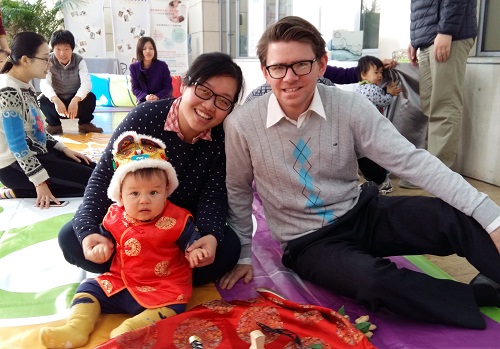Our Ask a Neighbor is a new series where we seek to discover the cultures of other international families living in Beijing, breaking out of our social bubbles. If you’d like to be featured next, please email: jessicasuotmaa@beijing-kids.com for the chance!
Dr. Van Wijlick is an Assistant Professor of History at Peking University, and lives with his wife, Ms. Xin Sun and their 14 month old baby in Wudaokou, Haidian district.

What is culture to you and your family?
Although our family consists of individuals who have been born and raised in different parts of the world, we recognize the existence of mutual cultural differences. These differences manifest themselves in various ways, such as in language and social interactions. Yet, these variations do not form such a hindrance that they prevent us from understanding one another. To a large extent, this has to do with the fact that the values underlying the cultural expressions of Chinese and Dutch people are not that different. For example, in both cultures politeness, modesty, honesty and respect for the elderly are highly regarded.
What would you say your culture was like before coming to China?
This question will not incite the answer you are anticipating, I suppose, for I have to admit that my culture was very much the same. The reason is that I had already left the Netherlands more than five years prior to my coming to China, when I studied in the UK and met my (Chinese) wife. During this period, I had been living in very international environments (in the UK and in Beijing), and had also gotten to know Chinese culture well through my wife and her friends.
How has China influenced your culture?
Since moving to China, I have begun to celebrate some of the major Chinese annual festivals, such as the Spring Festival (including the making of jiaozi) and the Mid-Autumn Festival.
Do you think your culture will change when you leave China?
We currently have no plans to leave China, but I expect that should we ever leave Beijing that our culture will undergo some changes.




